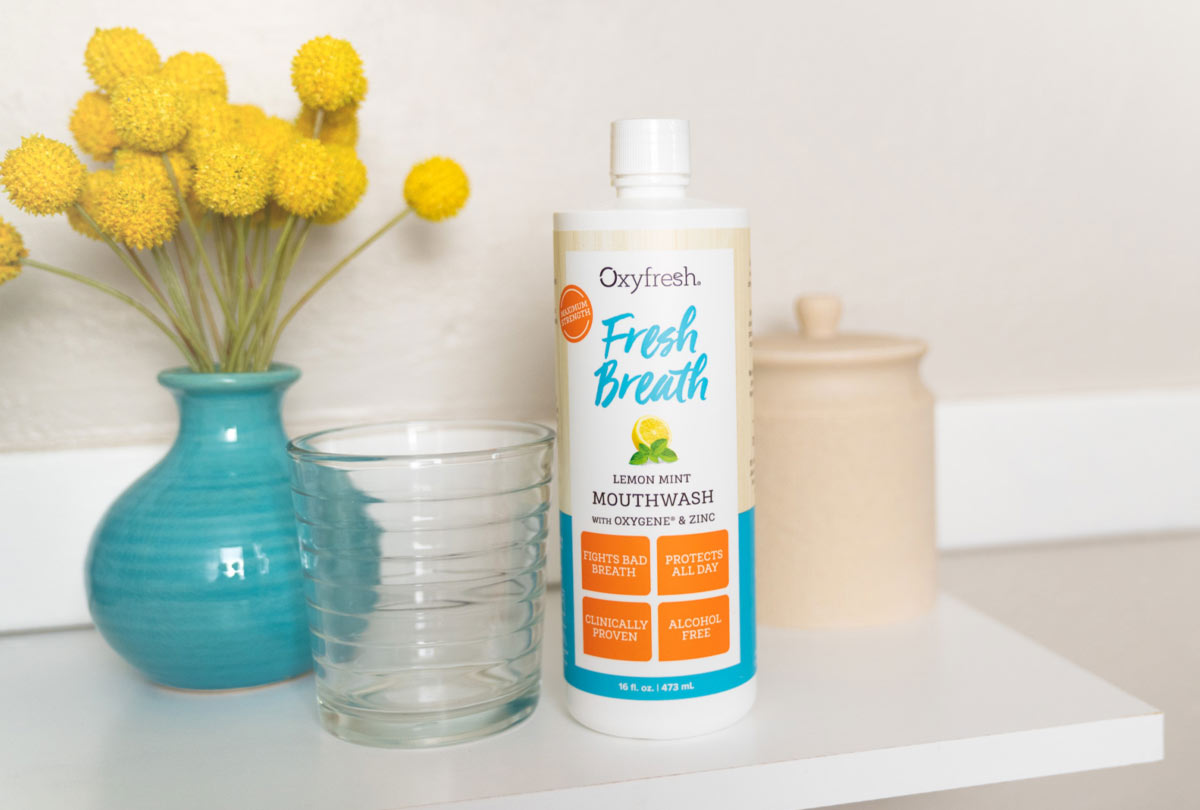Why do my teeth hurt after whitening? If this question is putting a damper on your newly white smile, you’re not alone. More than 6 in 10 people will experience tooth sensitivity after teeth whitening. Fortunately, there are many simple ways to deal with this annoying – and painful – problem, from avoiding certain drinks to using a teeth sensitivity gel.
Why Do Teeth Hurt After Whitening?
Whitening causes sensitivity because of how the bleaching agents (hydrogen peroxide and carbamide peroxide) affect the enamel.
When our teeth come into contact with bleaching agents, they lose minerals, temporarily making our enamel – the outermost layer of the teeth – softer and more porous. This exposes our dentinal tubules, which are located in the dentin, the layer of our teeth directly below the enamel. Think of these little guys as microscopic channels. They lead to the center of our teeth, where the nerves are housed. Hence, that sudden, sharp pain when we drink something cold after having our teeth bleached.
Important: When using bleaching agents, always follow the directions carefully. Do not think “If I leave my trays or strips on longer, my teeth will be whiter.” The opposite can occur. Overbleaching can lead to splotches and/or a blue sheen to the teeth, not to mention increased sensitivity. And for those who make overbleaching a habit, the enamel can eventually wear away, exposing the yellow dentin underneath, giving our teeth the opposite appearance of what we were trying to accomplish in the first place!
How Long Does Sensitivity Last After Whitening?
The good news is, tooth sensitivity after whitening is only temporary. Usually the pain is worse in the first 48 hours and then subsides within a week as our teeth remineralize. However, if your tooth sensitivity is severe, it may last 3 weeks or more.
Helpful Hint: Before you begin your teeth whitening treatment, switch to a non-staining fluoride toothpaste in the weeks leading up to it. This will reduce your odds of getting tooth sensitivity post-treatment.
Does It Matter What Kind of Whitening Treatment You Choose?
In general, the greater the concentration of the bleaching agent, the worse the tooth sensitivity. To give you some perspective, whitening products you’ll find at the store usually have 3–20% peroxide while professional treatments have 15–43%. However, professional treatments do yield whiter results in a faster amount of time, so it’s all about risk-reward for your individual smile. If you need guidance, your dentist or hygienist is the best resource.
Teeth Desensitizer Tips
Time can tick by slowly when you’re waiting for sensitivity to go away after teeth whitening. Fortunately, there are many steps you can take to make sure you’re as comfortable as possible.

What Is the Best Sensitivity Gel After Whitening?
Using a desensitizer gel for teeth is the quickest and easiest way to ditch the sensitivity post-whitening. But don’t grab any old tube of sensitive tooth gel. Go with the choice that dentists recommend: Oxyfresh Pro Relief Dental Gel.
This fast-acting, USA-made teeth sensitivity gel is formulated with ingredients straight from nature: aloe vera, chamomile, and natural spearmint leaf oil. As it remineralizes, Pro Relief Dental Gel delivers unrivaled soothing action.
Results that get noticed!
“Really helped heal my gums. Positive results noticed by dental professionals at my last dental cleaning!”
Rebecca S.
Think beyond whitening: This soothing teeth desensitizer gel is also perfect if you have sore gums after a visit to the dentist, if you have a canker sore or pizza burn, or if you’ve accidentally bitten your lip or inner cheek (the worst!).
For any kind of sensitivity, when you need super relief, choose Oxyfresh Pro Relief Dental Gel. Your white, bright smile will thank you!




